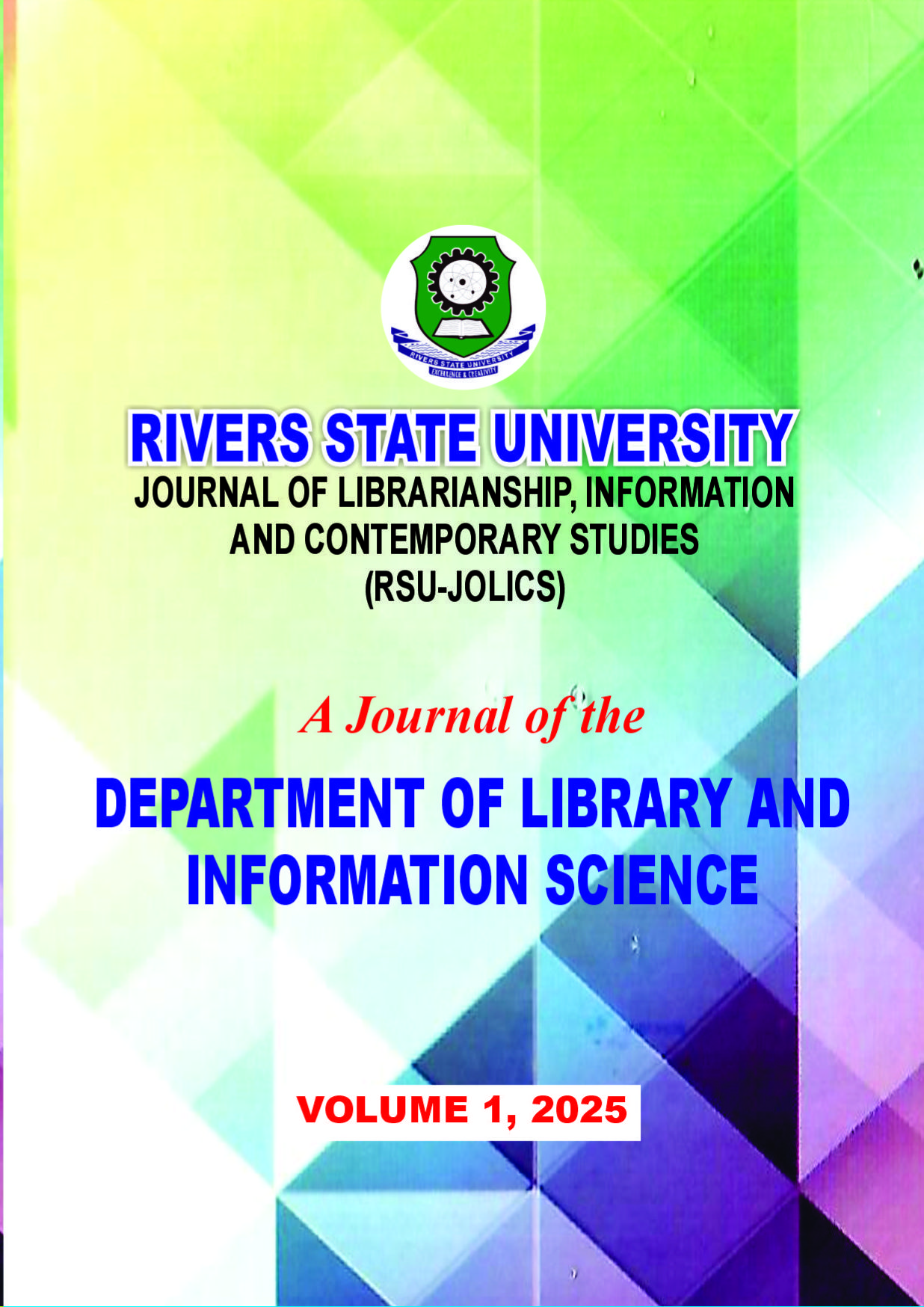Abstract
Abstract
This paper explores the crucial role of Information and Communication Technology (ICT) in securing library resources within Nigerian universities. As libraries transition into the digital age, the challenges of theft, mutilation, unauthorized access, and poor resource tracking continue to hinder their effectiveness. This paper argues that ICT tools—such as RFID, CCTV surveillance, integrated library management systems (ILMS), and digital access control—are indispensable in addressing these security challenges. However, issues such as inadequate funding, poor electricity supply, lack of technical expertise, and weak policy frameworks continue to impede their effective use. The paper recommends increased in subvention, ongoing staff training, and stronger policy support. It concludes that ICT is not a luxury but a necessity in securing the intellectual assets of Nigerian academic libraries in a modern information environment. The paper suggests that CCTV systems should be installed at entry/exit points, reading areas, and special collections rooms and that libraries must ensure that recorded footage is securely stored and regularly reviewed. Moreover, Electronic anti-theft systems should be installed in all university libraries, especially those with high traffic and Staff should be trained to respond swiftly to triggered alarms. Finally, university libraries should integrate biometric and smart card systems to control access, especially to ICT labs and special collections and backup authentication methods should be provided for system downtimes among others.
Keywords: ICT, library security, Nigerian universities, RFID, ILMS, surveillance, library management



 National Library of Nigeria
National Library of Nigeria.jpg) Association of Nigerian Authors
Association of Nigerian Authors Nigerian Library Association
Nigerian Library Association EagleScan
EagleScan Crossref
Crossref